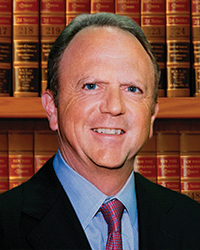Law: Is Dodd-Frank working? - by James Ricca and Lindsay Mesh
The regulatory history of banking in the U.S. is marked by our government’s response to economic events. Dodd-Frank was the reaction to the 2008 financial crisis and when signed into law, President Obama said it would “lift our economy.” Dodd-Frank has implemented many “reforms” by creating new and strengthening existing regulatory agencies and giving them greater oversight powers. However, too-big-to-fail institutions have not disappeared. In fact, big banks have over-all grown bigger. Whereas, small community banks have struggled with Dodd-Frank’s new compliance and reporting regulations, which they have found costly, time consuming and burdensome.
Enforcement tools under Dodd-Frank employed by regulators include fines, restricting activities, restricting credit, requiring termination of select personnel, receivership and criminal prosecution.
Dodd-Frank has failed to eliminate “shadow banking,” which contributed to the 2008 crises. Shadow banking is where a regulated financial institution uses an intermediary to engage in an unregulated activity that it is not permitted to do.
As for some of Dodd-Frank’s successes, recent evidence suggests that as a result of tighter regulations on investments, the big banks have been forced to lend more, resulting in more capital in the banking system in order to increase income. The big banks are more lending focused then they used to be, creating more capital than before in order to absorb loan losses, which was one of the big problems of the financial crisis.
The thinking behind Dodd-Frank was that if strict regulations were imposed on the biggest banks raising their cost of doing business, then big banks would shrink on their own eliminating the need to go in and force them to break up. It seemed like that line of thinking was flawed, however, now it seems to be coming to fruition.
The financial system today still has a long way to go, but it is safer than it was five years ago. Issues that still need to be addressed include: making it easier for small banks to do business; ensuring the government is responding to the risks of shadow banking, and dealing with the risks of high-frequency trading; but, at least now, there are better rules for the road to financial recovery.
James Ricca is a partner and member of the real estate law group and co-chair of the banking law group; and Lindsay Mesh is an associate at Forchelli, Curto, Deegan, Schwartz, Mineo & Terrana, LLP, Uniondale, N.Y.
Berger and Koicim of Marcus & Millichap sell 17-unit multi-family for $8.8 million


Behind the post: Why reels, stories, and shorts work for CRE (and how to use them) - by Kimberly Zar Bloorian

Strategic pause - by Shallini Mehra and Chirag Doshi

AI comes to public relations, but be cautious, experts say - by Harry Zlokower











.jpg)
.gif)
.gif)